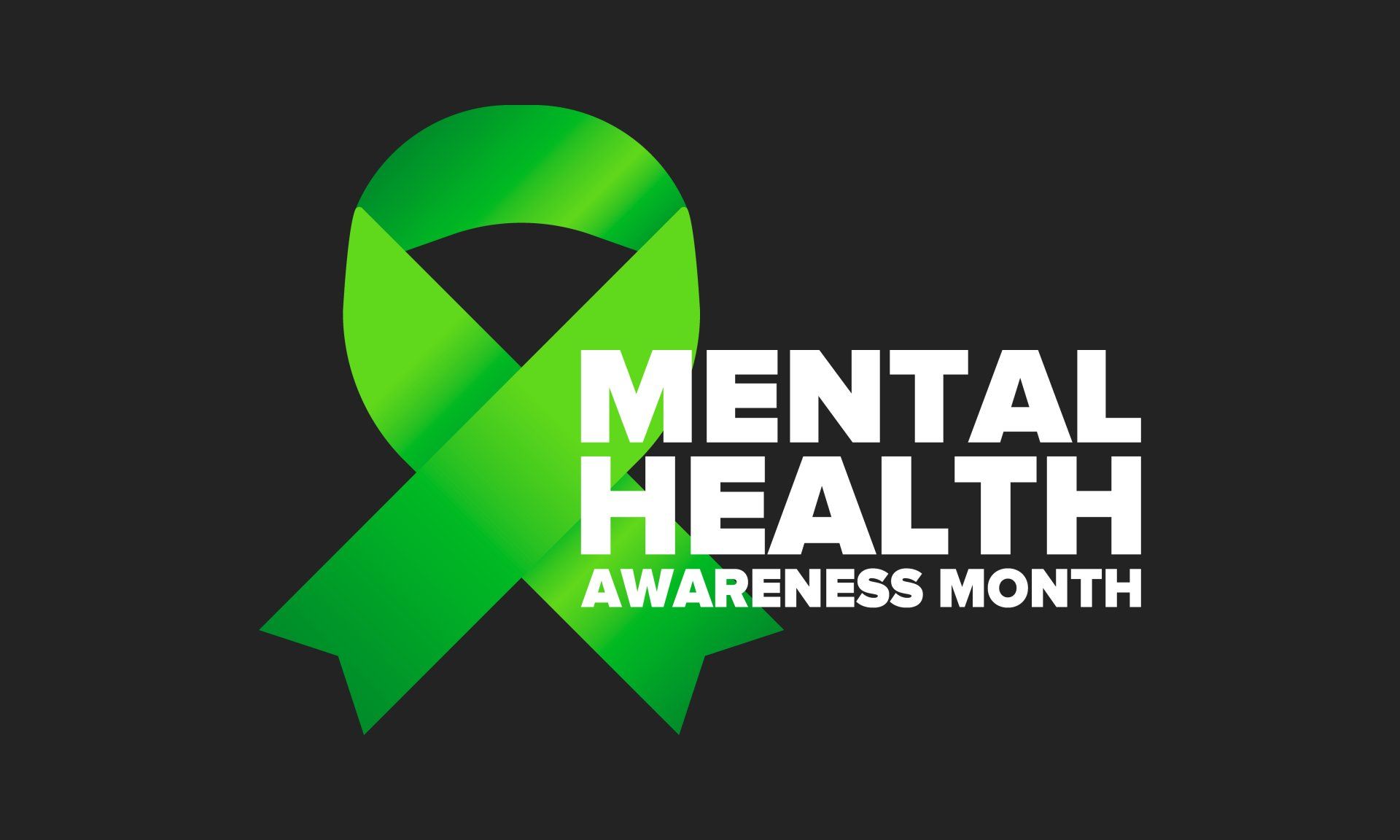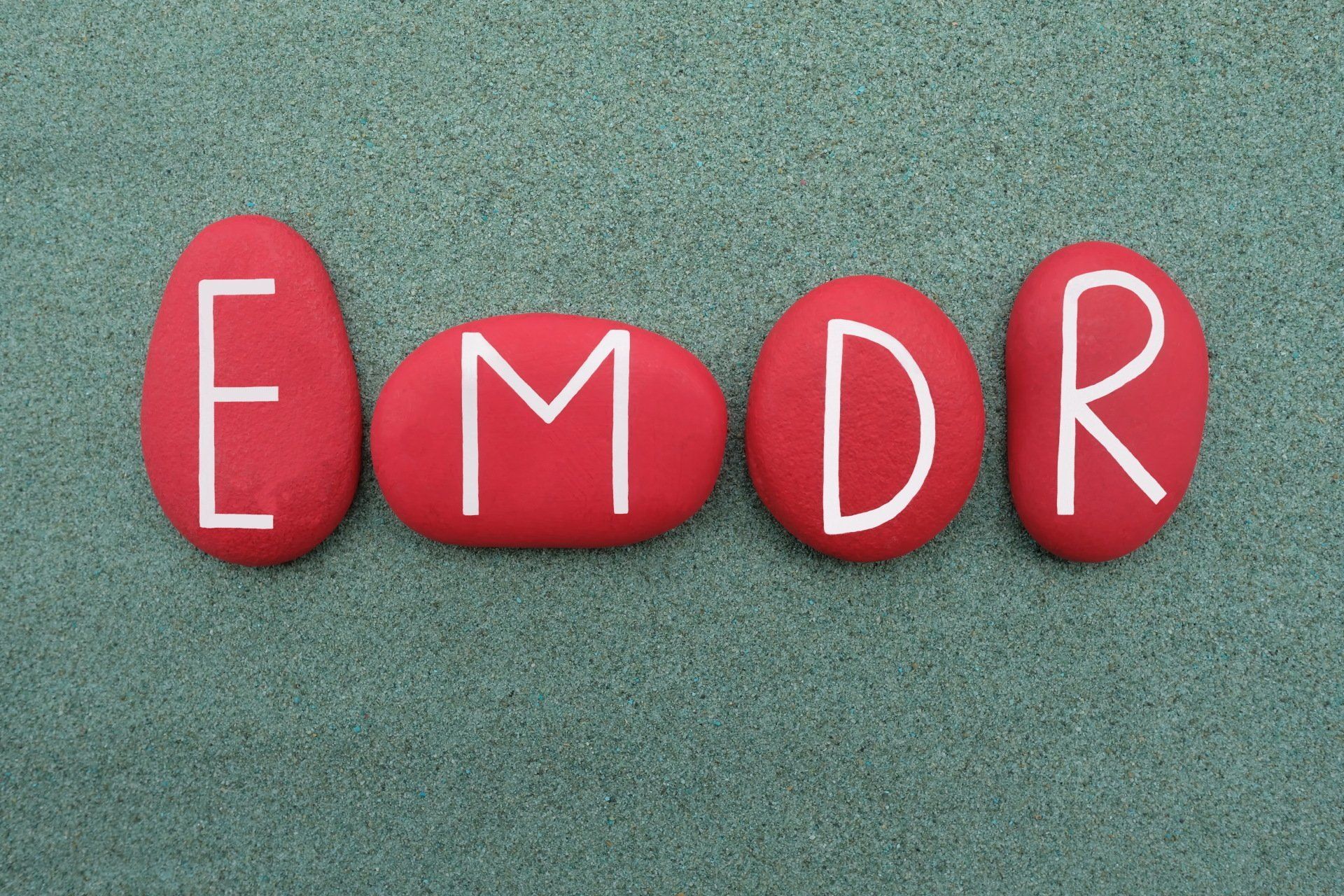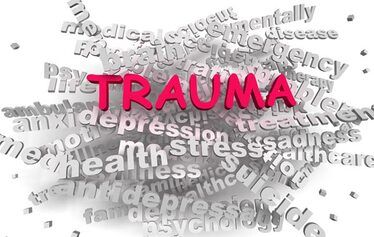Managing Anxiety And How It Affects Us
Austin CTS ~ February 21, 2023
Managing Anxiety and How It Affects Us
Do you feel like anxiety is taking over your life? If so, you’re not alone. Anxiety affects us all in different ways and can be a major obstacle for many of us who are striving to reach our goals or just live day-to-day lives. But with the right tools, we can learn how to manage it effectively. In this article, I will discuss the effects of anxiety on our daily lives and provide tips and strategies that can help you manage it better.
Anxiety has been linked to several physical health issues such as headaches, stomachaches, high blood pressure, chest pain, fatigue and more. It also impacts our mental state by making us unable to concentrate or focus at times and increasing feelings of stress or depression. When unchecked, anxiety can lead to serious problems down the road such as social isolation, substance abuse, poor decision making and even suicidal thoughts.
The good news is that there are effective steps you can take today to start managing your anxiety levels so that they no longer become an issue in your life. Through understanding the causes of your anxiousness and learning new coping mechanisms, you can gain control over your emotions and have a much healthier outlook on life overall.
What Is Anxiety?
Today we're discussing anxiety and how it affects us. So let's start by defining what anxiety is.
Anxiety can be described as an intense feeling of fear or worry that can cause physical reactions like shallow breathing, sweating, trembling, tightness in the chest, dizziness, nausea and a racing heart rate. It often arises from our body’s natural fight-or-flight response when faced with stressful situations. Anxiety can also manifest itself in
mental health issues such as obsessive thinking, panic attacks and phobias.
When left unchecked, anxiety has far reaching consequences for our behavior and well-being; it can affect both our short term decisions - leading to avoidance behaviors – as well as long term goals if not addressed properly. We'll be exploring this further but first let’s spend some time talking about ways to manage your own feelings of anxiety so you have the tools to help yourself through these difficult times.
Causes Of Anxiety
Anxiety can be caused by a variety of factors. It's important to understand what these are in order to manage them effectively.
One cause is genetics - if there is a family history of anxiety, you may have an increased likelihood of developing anxiety yourself. This doesn't mean that everyone with a family history will experience anxiety, but it could increase the risk. Other biological factors like hormones and neurotransmitter imbalances can also contribute to feelings of anxiousness.
Stressful life events can also trigger anxiety. These might include big changes such as relocating or starting a new job, bereavement or divorce, or experiences of trauma or abuse. Your environment has an impact too - living under challenging circumstances such as poverty or coming from an unstable home life can lead to higher levels of stress which in turn increases the chances of developing anxiety disorders.
It's not always easy for us to identify our own triggers for anxious thoughts and behaviors, so seeking professional help from a counselor or
therapist who specializes in working with anxiety can give you the support you need to work through your anxieties and learn how best to manage them.
How To Diagnose Anxiety
When it comes to diagnosing anxiety, the first step is to understand its causes. Anxiety can be caused by a variety of factors—genetics, environmental stresses, and even physical illnesses or injuries. It's important to remember that everyone experiences different levels of anxiety. That said, if you believe your symptoms are impairing your quality of life, then it may be time to take action.
Fortunately, there are ways for us to diagnose anxiety in order to find the best course of treatment. We do this through an assessment process which includes talking about any worries or concerns you may have. We also explore possible triggers for your anxious thoughts as well as how these feelings might manifest physically — such as headaches or nausea. By understanding more about the cause and severity of your anxiety we can come up with a plan that works for you.
With the right therapeutic approach and self-care techniques, many people experience significant reductions in their anxiety symptoms over time. With these tools to help you on your journey, you can learn healthy strategies for managing your emotions and returning back to a sense of calmness and balance in life.
Treating Anxiety Through Counseling
When it comes to treating anxiety,
counseling can be a great option. It's an opportunity for someone who is struggling with their mental health to talk through issues and get help from a trained professional in managing the symptoms of anxiety. Through counseling, individuals can work on developing skills that enable them to cope better when feeling overwhelmed or anxious.
Counseling involves exploring thoughts, feelings and behaviors that may be contributing to distress. This type of therapy is collaborative - so both the counselor and the client have input into how best to approach each session. You might discuss strategies such as relaxation techniques, problem solving approaches or ways of changing unhelpful thinking patterns which are all useful in managing anxiety over time.
Ultimately, having access to support throughout this process can help reduce the intensity and frequency of anxious episodes. By working together with your counselor, you will develop new insights and practical tools that will empower you to take control over your life again.
Cognitive Behavioral Therapy For Anxiety
Cognitive Behavioral Therapy (CBT) is a type of psychotherapy that can be very effective in managing anxiety. It works by focusing on understanding negative thoughts, feelings, and behaviors associated with the condition. CBT encourages individuals to challenge those unhealthy thought patterns and replace them with healthier ones. Sessions typically involve talking through problems, identifying triggers for anxious behavior, setting realistic goals, and developing coping strategies.
This therapy has been proven to help people cope better with their symptoms and reduce overall levels of stress and anxiety. By learning how to identify and change unhelpful thinking patterns, clients are able to develop skills that will last long after treatment ends. In addition, CBT helps individuals become more aware of their own emotions so they can address issues without relying solely on medication or other forms of support. With the right approach from a trained professional, this therapy can provide an invaluable tool for helping manage the effects of anxiety.
At its core, cognitive behavioral therapy offers practical tools for addressing emotional difficulties while teaching self-management skills that promote wellbeing over time.
Mindfulness-Based Therapies For Anxiety
Mindfulness-based therapies for anxiety are growing in popularity and offer a unique way to help manage symptoms of this condition. This approach involves focusing on being present in the moment, without judgment or criticism. It also encourages an acceptance and nonreactivity to thoughts and feelings that arise during times of distress.
Mindfulness-based practices have been shown to be effective in reducing stress, improving mood and overall well being, as well as helping people become more aware of patterns of behavior related to their anxiety. Practices such as meditation, yoga, mindful breathing exercises, and body scans can all be used to cultivate mindfulness skills which can help reduce anxious feelings.
TIP: When feeling overwhelmed by anxious thoughts or emotions it is important to remember that you don't need to try and suppress them; instead focus your attention on acknowledging these thoughts/feelings with kindness and curiosity. Doing so will give you increased awareness into how they affect your life allowing you to respond differently than before when faced with similar situations.
Relaxation Techniques For Anxiety
Relaxation techniques are an effective way to manage anxiety. There is a wide range of relaxation therapies available, and you can find one that best suits your needs. Through incorporating regular relaxation practices into your daily routine, you will be able to reduce the intensity of anxious thoughts and feelings.
For example, with progressive muscle relaxation (PMR) you can learn how to recognize and control physical tension in your body when feeling overwhelmed or stressed. This technique involves tensing and then releasing various muscles throughout the body, which helps to promote more relaxed states of being. Additionally, guided visualization is another popular option for calming down during times of stress; this involves mental imagery where you practice focusing on relaxing scenarios or environments that bring about a sense of peacefulness within yourself.
At first these techniques may take some time getting used to but over time they become easier and more natural to use whenever needed - making them invaluable tools for managing anxiety. With consistent practice and dedication, soon enough you’ll feel confident in implementing these strategies whenever necessary.
The Role Of Diet And Exercise In Managing Anxiety
It is common knowledge that diet and exercise can be beneficial for managing anxiety. When we make sure to keep our bodies nourished with healthy foods and regularly participate in physical activity, this has a positive impact on our mental health. By introducing these habits into our lives, it can help us reduce stress levels and feel more relaxed overall.
Engaging in regular physical activity not only strengthens the body but also benefits the mind too. Exercise releases endorphins which give us an instant mood boost - reducing feelings of worry or fear associated with anxiety. It's important though to remember to start at your own pace; there’s no need to do too much too soon if it feels overwhelming! Eating a balanced diet aids our body with numerous essential vitamins, minerals and fiber. Allowing ourselves time for mindful eating rather than wolfing down food helps us become aware of hunger signals from our body – helping calm any anxious thoughts around meal times.
By taking small steps towards improving both diet and exercise, we can develop healthier habits which may help ease symptoms of anxiety over time. With the right support structure, we are able to create new paths forward so that we can manage how it affects us better each day.
Understanding The Links Between Anxiety And Stress
Understanding the links between anxiety and stress is an essential step in managing anxiety. While it is true that diet and exercise play important roles in helping us to manage our anxieties, understanding how our environment and lifestyle affect us emotionally can also be just as crucial.
Clients may struggle with both physical and mental symptoms associated with high levels of stress. Common signs of increased stress include difficulty sleeping, loss of appetite, irritability, restlessness or fatigue. It's not always easy for people to recognize when their stress levels are getting too high; however, if left unchecked these symptoms can worsen into more serious issues such as depression or even panic attacks.
It’s important that we take steps to identify and address any sources of stress in our lives. Here are a few things you can do:
• Make time for yourself – set aside some ‘me-time’ each day to relax and unwind
• Practice mindful activities like yoga or meditation
• Engage in regular exercise
• Try to eat healthy meals throughout the day
By taking care of ourselves both physically and mentally we will be better equipped to handle life’s daily challenges while avoiding feelings of overwhelm or anxiety.
Social Support Strategies For Anxiety
Anxiety can be a difficult emotion to manage, and it is often linked to stress. It’s important to have effective strategies in place when dealing with anxiety, including social support. Social support provides the opportunity for meaningful connection with other people which can help reduce feelings of isolation and foster resilience during times of distress. In this section I will discuss some specific ways we can access social support as a strategy for managing our anxiety.
Firstly, there are several different types of social supports available that may be helpful depending on individual needs. These include:
• Professional
counseling or therapy – talking about your experiences with an experienced mental health professional can provide valuable insight into understanding and coping with anxiety
• Support groups – connecting with others who share similar struggles around anxiety can create a sense of community and normalize these experiences
• Friends & family – having close relationships where you feel heard, understood and accepted is essential for emotional wellbeing
• Online communities - participating in online forums or chat rooms dedicated to discussing issues related to anxiety provide an anonymous space free from judgment
Making use of one or more forms of social support can go a long way towards helping us manage our anxiety effectively. When considering what type(s) of social support might work best for you, it's also important to think through how much time, effort and money you want/are able to invest in such activities. No matter what kind of support system you choose however, simply knowing that someone else is there to listen without judgment creates a powerful source of strength that allows us to keep going even during difficult times.
Practical Strategies For Managing Anxiety
When it comes to managing anxiety, there are many practical strategies you can use. Let's look at what these might be and how they could benefit you. Firstly, developing a regular routine for yourself that includes activities like exercise and relaxation techniques is an important step in managing your anxiety symptoms. Regular physical activity helps us regulate our emotions and cope better with stressors. It also releases endorphins which make us feel good! Additionally, learning tools such as deep breathing exercises or mindfulness meditation can help reduce feelings of distress by helping us focus on the present moment instead of worrying about future events.
Another useful strategy is to reach out for social support when feeling overwhelmed or anxious. Having supportive family members, friends, colleagues or even professionals around us gives us more confidence in facing our fears and worries. If needed, consider talking to a
mental health professional who can provide additional guidance and advice tailored to your individual needs. By doing this together we will develop a plan to manage your anxiety so that it doesn't take over your life but rather supports you through difficult times.
Self-Care Tips For Living With Anxiety
Living with anxiety can be challenging, and it's important to prioritize self-care. Let's explore some practical strategies for managing your own anxiety.
The first step is to create a plan that works best for you in order to cope with the feeling of anxiousness. It could include activities like exercising, journaling, or spending time outdoors. You should also take breaks throughout the day and remember to give yourself permission to rest when needed. Additionally, connecting with supportive people who understand what you're going through can help provide additional support too.
It's also important to check in with yourself regularly so that you can recognize any warning signs of heightened levels of stress and anxiety. Taking regular deep breaths during times of distress can aid in calming down; focusing on something positive such as an affirmation or good memory can also help shift your perspective. Finally, don't forget that it’s ok to ask for help if you need it—many resources are available
online or from professionals specializing in mental health care if necessary.
Self-care is key when living with anxiety—and by taking steps towards managing your emotions and implementing helpful coping skills into your life, you will be better equipped in dealing with the difficulties associated with it.
Long-Term Strategies For Preventing Anxiety
When it comes to managing anxiety, self-care is an important part of the equation. But in order to better understand and prevent our anxious thoughts from taking over, we must also look at long-term strategies for preventing anxiety.
There are a number of approaches one can take when developing a strategy for long-term prevention of anxiety. Firstly, it's essential that you become aware of any negative thought patterns or behaviors that may be fueling your anxiety. It can help to keep track of these so you can identify when they're happening and develop healthier responses. Additionally, maintaining healthy lifestyle habits such as regular exercise and eating nutritious foods has been linked to reducing symptoms of psychological distress like worry or fear. Finally, finding meaningful activities to engage with such as hobbies or creative projects can give us purpose and direction while helping us focus on something positive in life instead of our worries.
It takes time and effort but cultivating more control over our mental health through preventive measures is possible. With consistent practice, we will eventually learn how best to manage our anxious feelings in a way that works for us.
Conclusion
Anxiety can be a difficult and overwhelming experience. It is important to remember that there are many
resources available for managing anxiety, including counseling, cognitive behavioral therapy, social support strategies, practical strategies, self-care tips, and long-term prevention. With the right combination of these interventions you can learn how to effectively manage your anxiety so it no longer has such an impact on your life.
It takes time and effort to address anxiety successfully but with the help of professionals, friends and family members, you can get through this challenging period in your life. Remember that anxiety does not have to define who you are; instead you can find ways of coping with it so that it becomes less intrusive over time.
We encourage anyone struggling with chronic or ongoing anxiety to seek help from one of our
therapist in Austin. Together we will explore what works best for you so that you may gain insight into yourself, increase your resilience and ultimately lead a more fulfilling life free from the grip of fear and worry.










